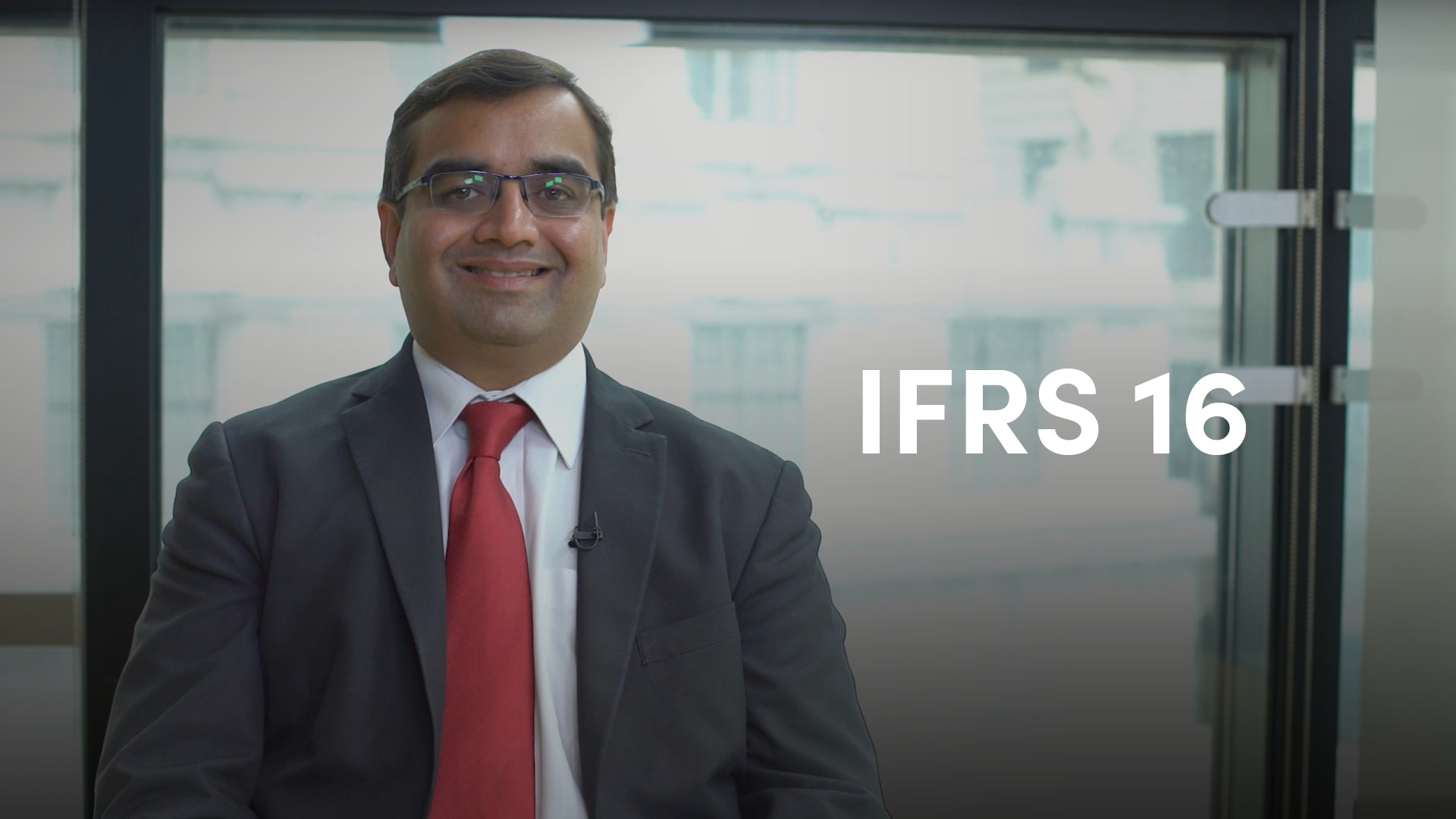
IFRS 16 Background

Saket Modi
20 years: Chartered accountant & educator
The main impact of IFRS 16 Leases is on lessee accounting. Saket explains the extent of this impact in terms of comparing it to IAS 17 Leases, the accounting model and the performance metrics.
The main impact of IFRS 16 Leases is on lessee accounting. Saket explains the extent of this impact in terms of comparing it to IAS 17 Leases, the accounting model and the performance metrics.
Subscribe to watch
Access this and all of the content on our platform by signing up for a 7-day free trial.

IFRS 16 Background
2 mins 51 secs
Key learning objectives:
Outline the requirements of IAS 17
Learn how IFRS 16 differ from IAS 17
Understand the impact of transition to IFRS 16 Leases
Overview:
The main impact of IFRS 16 Leases on lessee accounting. Whilst the impact on lessor accounting is minimal, there are additional disclosure requirements. The transition to IFRS 16 primarily affects financial and performance metrics, for example, EBITDA and financing cash flows. Two main methods can be utilised in transition, these are the modified and full retrospective approaches.
Subscribe to watch
Access this and all of the content on our platform by signing up for a 7-day free trial.
When is IFRS 16 Leases effective?
- Effective for accounting periods beginning on or after 1 January 2019
- Replaces IAS 17 Leases
What are the requirements of IAS 17?
- Requires a lessee to classify leases into finance and operating leases
- Operating lease accounting requires the lessee to recognise only rental expense in the income statement and no asset or liability even though there is a right-to-use asset and obligation to pay rentals
- This leads to a misleading impression of the lessee’s leverage and assets in use
How does IFRS 16 differ from IAS 17?
- IFRS 16 has introduced a single lease accounting model where all leases (except short-term leases and assets of low value) require recognition of the right-of-use asset and lease liability
- For operating leases, a depreciation or amortisation charge and finance cost is recognised instead of rental expense in the income statement
- This increases EBITDA
- In the cash flow statement, under IAS 17, the entire rental expense would have been recognised as cash outflows from operating activities. Since the same cash payment is attributed to interest and liability repayment in IFRS 16, there is an increase in net cash flows from operating activities and a decrease in net cash flows from financing activities
What is the impact of transition to IFRS 16 Leases?
The transition to IFRS 16 has an impact on:
- Financial Ratios
- Performance Metrics - gearing, EBITDA, net income, earnings per share, return on capital employed, return on equity and operating and financing cash flows
What are the two approaches for transition to IFRS 16?
- Modified Retrospective Approach - Requires the cumulative effect of initial application to be recognised in retained earnings at the date of initial application with no restatement of comparatives
- Full Retrospective Approach - Requires restatement of the comparatives
Subscribe to watch
Access this and all of the content on our platform by signing up for a 7-day free trial.

Saket Modi
There are no available Videos from "Saket Modi"






















